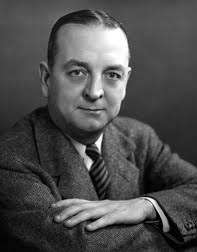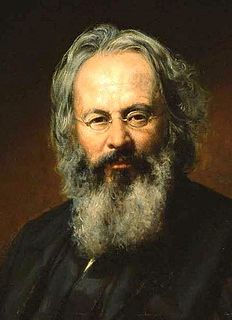A Quote by Henry Calvert Simons
Private property in the instruments of production is an institutional device both for dispersing power and for securing effective organization of production. The only simple property system is that of a slave society with a single slave owner - which, significantly, is the limiting case of despotism and of monopoly. Departure from such a system is a fair measure of human progress.
Related Quotes
I have no concern with any economic criticisms of the communist system; I cannot inquire into whether the abolition of private property is expedient or advantageous. But I am able to recognize that the psychological premisses on which the system is based are an untenable illusion. In abolishing private property we deprive the human love of aggression of one of its instruments... but we have in no way altered the differences in power and influence which are misused by aggressiveness.
One ideological claim is that private property is theft, that the natural product of the existence of property is evil, and that private ownership therefore should not exist... What those who feel this way don't realize is that property is a notion that has to do with control - that property is a system for the disposal of power. The absence of property almost always means the concentration of power in the state.
What our generation has forgotten is that the system of private property is the most important guarantee of freedom, not only for those who own property, but scarcely less for those who do not. It is only because the control of the means of production is divided among many people acting independently that nobody has complete power over us, that we as individuals can decide what to do with ourselves.
We hold that the ownership of private property is the right and privilege of every American citizen and is one of the foundation stones upon which this nation and its free enterprise system has been built and has prospered. We feel that private property rights and human rights are inseparable and indivisible. Only in those nations that guarantee the right of ownership of private property as basic and sacred under their law is there any recognition of human rights.
If history could prove and teach us anything, it would be the private ownership of the means of production as a necessary requisite of civilization and material well-being. All civilizations have up to now been based on private property. Only nations committed to the principle of private property have risen above penury and produced science, art, and literature. There is no experience to show that any other social system could provide mankind with any of the achievements of civilization.
The monopoly of capital becomes a fetter upon the mode of production, which has sprung up and flourished along with, and under it. Centralisation of the means of production and socialisation of labour at last reach a point where they become incompatible with there capitalist integument. This integument is burst asunder. The knell of capitalist private property sounds. The expropriators are expropriated.
It is also true that the less possible it becomes for a man to acquire a new fortune, the more must the existing fortunes appear as privileges for which there is no justification. Policy is then certain to aim at taking these fortunes out of private hands, either by the slow process of heavy taxation of inheritance or by the quicker one of outright confiscation. A system based on private property and control of the means of production presupposes that such property and control can be acquired by any successful man.
It has been the fashion to speak of the conflict between human rights and property rights, and from this it has come to be widely believed that the use of private property is tainted with evil and should not be espoused by rational and civilized men... the only dependable foundation of personal liberty is the personal economic security of private property. The Good Society.
The difference between [socialism and fascism] is superficial and purely formal, but it is significant psychologically: it brings the authoritarian nature of a planned economy crudely into the open. The main characteristic of socialism (and of communism) is public ownership of the means of production, and, therefore, the abolition of private property. The right to property is the right of use and disposal. Under fascism, men retain the semblance or pretense of private property, but the government holds total power over its use and disposal.
The slave states of Western world are an outgrowth of monopolistic capitalism - an economic system which is opposed to the wide distribution of private property in many hands. Instead, monopolistic capitalism concentrates productive wealth among a few men, allowing the rest to become a vast proletariat.

































